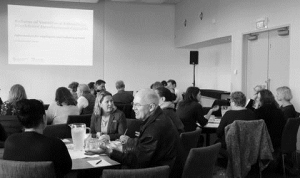Answers to come from stakeholder engagement
Answers to come from stakeholder engagement

The Tertiary Education Commission (TEC) and Ministry of Education have launched a large-scale engagement programme to start conversations with stakeholders on the creation of a new vocational education system.
Since the announcement of the Reform of Vocational Education (RoVE), senior leaders from both government agencies have met with industry training organisations (ITOs) and institutes of technology and polytechnics (ITPs) to discuss the changes initiated by RoVE and get input from sector leadership.
TEC and the Ministry of Education are also planning a regional engagement tour, which will include stakeholder meetings with Māori and iwi groups, industry and business representatives, economic development agencies, chambers of commerce and local government, private training establishments and wānanga.
TEC chief executive, Tim Fowler, says the ‘multi-pronged’ engagement approach with input from stakeholders will help form the new vocational education system to be the best it can be. “We are working with groups of stakeholders from across the sector. Each have a unique view of what the system should be. Capturing these perspectives is critical in making the new vocational education system as robust as possible.”
Tim says there’s a lot of work to be done in the creation of the system and that collaboration is the key to success. “The main thing we want to accomplish with stakeholder engagement is to initiate in-depth conversations so we can answer the big questions together,” he says.
The stakeholder engagement programme involves five main elements:
- ITO-facilitated engagements with employers.
- Workforce development council public meetings.
- A regional engagement tour across New Zealand.
- Individual meetings with specific industry groups as requested.
- Opportunities for organisations to submit feedback and questions via email.
The ITO-facilitated engagements with employers will cover the formation and establishment of workforce development councils as well as transition planning. Each ITO is leading this using the best approach for their own particular groups of employers and industries.
Workforce development council public meetings were held in September in the four main centres. However, because some employer and industry views may not have been captured at these meetings, additional sessions may be organised.
The regional engagement tour across the country will include discussions on the impacts of RoVE, while seeking input into the formation of the new vocational education system. The aim is to spend a day in each region, meeting with as many key stakeholders as possible. As the regional tour will leverage off existing meetings with other partner agencies, dates still to be confirmed.
Individual meetings will be held by request with specific industry and other stakeholder groups, and there will also be an opportunity for organisations to submit feedback via email.